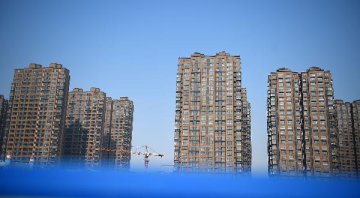
China's property sector continued to recover but at a slower pace in May, with fewer cities reporting month-on-month rises in new-home prices, an official survey showed Saturday.
Of 70 large- and medium-sized cities surveyed in May, 60 saw new-home prices climbing month on month, down from 65 in the previous month, the National Bureau of Statistics (NBS) said.
Meanwhile, four cities reported month-on-month price declines, down from five in April, according to NBS data. For existing homes, 49 cities reported month-on-month price increases in May and 13 reported lower prices, compared with 51 and 10 in April.
Overall, the home price growth has slowed down, with the average month-on-month increase for new homes narrowing 0.3 percentage points and that for existing homes contracting 0.4 percentage points, said NBS senior statistician Liu Jianwei.
Both top-tier cities and smaller cities saw milder month-on-month growth in May than in April, but the year-on-year data remained upbeat, Liu said. On a yearly basis, 50 cities posted new-home price increases and 18 reported falls in May, compared with 46 and 23 in April.
New-home prices soared 54 percent year on year in the southern city of Shenzhen, the sharpest increase last month among all the major cities. Prices in the top-tier cities of Shanghai, Beijing and Guangzhou rose 33.8 percent, 21.4 percent, and 19 percent year on year, respectively.
The northeastern city of Jinzhou registered the steepest price decline of 3.2 percent over a year earlier. While top-tier cities posted slower year-on-year price increases, second- and third-tier cities saw average growth accelerate from April, Liu said.
China's housing market started to recover in the second half of 2015 after cooling for more than a year, boosted by government support, which included interest rate cuts and lower deposit requirements.
The sector's recovery, however, has been uneven from city to city, with economically strong areas reporting drastic price rises, and less developed areas still reporting huge stocks of unsold houses.
The contrasting picture has prompted local authorities to take different approaches: Shenzhen and Shanghai have tightened policies to curb speculative purchases and contain bubble risks, while third- and fourth-tier cities are exploring new ways to spur sales.



















Latest comments